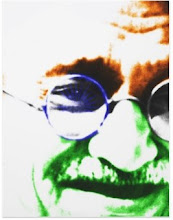Thanks to RTI, students can now access their answer sheets.
Upholding the Calcutta High Court’s decision to allow students to see their answer sheets, the Supreme Court allows candidates of all examination to access answer sheets through RTI.
The Supreme Court’s judgment would now allow the students to access their answer sheets under RTI Act. The Supreme Court said that examination conducting agencies have no fiduciary capacity and hence they can’t restrict students from seeing their answer sheets. Student can access answer sheets through RTI.
Now all Students can view their Answer Sheet including professionals: Supreme Court
In a landmark judgement which would be thanked by the Student Fraternity across India, Supreme Court on 9 th August 2011 has announced that any Student aggrieved by the marks awarded to him/her in the Exams can now make an application and have a look at how the marks have been awarded. All Students irrespective of whether in School, College or pursuing Professional Qualification like CA/IAS/MBA can now file an application under RTI and the Institute conducting the Exams would be under an obligation to reveal to the Student his answer sheet and the manner in which he has been awarded marks.
Even Students appearing for Class X and Class XII Boards would now be able to view their answer sheets as Supreme Court has now ordered for disclosure of Answer Sheets for those students making an application under the RTI Act.
Passing the path-breaking order that will be lapped up by students, but may cause consternation among the teaching fraternity, a bench of Justices R V Raveendran and A K Patnaik dismissed a bunch of appeals filed by the Central Board of Secondary Education, West Bengal Board of Secondary Education, Institute of Chartered Accountants of India (ICAI), University of Calcutta, West Bengal Central School Services Commission and Assam Public Services Commission who had challenged the Judgement of the High Court. The petitioners had challenged rulings by different information commissioners under the RTI Act directing them to show the answer-sheets to the students.
The basic contention of all these education boards, Calcutta University and ICAI was that there was a fiduciary relationship between the examiner and the board, and hence it was not proper to show the answer-sheet to the student. CBSE had claimed exemption from the ambit of RTI Act. The Supreme Court held that evaluated answer-sheets were covered under the definition of information under the RTI Act, 2005 and reiterated the duty of the public authority to allow maximum disclosure as envisaged by the RTI.
Explaining the scope of the fiduciary relationship of the agency holding the examination, the Bench held that bodies conducting examinations could not retain evaluated answer sheets in any fiduciary capacity and contend that they would not disclose the same. Welcoming the judgment, the National Campaign for Peoples Right to Information, said: The NCPRI believes this ruling would positively affect the transparency rights of lakhs of students of all kinds across the country including examinations conducted by school boards, universities and public service commissions CAT 2011.The move will help make the education system more transparent and administrators more accountable, said Sobha Mishra, head of education at industry lobby Ficci. If someone sat for an exam, he should not be denied the right to see his answer paper once the result is out.
No institute or exam-conducting body should ever resist such disclosure, she said. The verdict will benefit lakhs of students appearing for various examinations, including CA Exams conducted by the ICAI, as it gives a student the right to inspect answer-sheets by just applying to the relevant university, council, board or commission.
Rooj was a student of mathematics in the Presidency College.
In 2006, when he sat for the first part of degree examination he secured 52 percent marks. In the second year he got 208 out of 400 marks and got just 28 marks out of 100 in the fifth paper. Upon seeking re-evaluation, his marks increased by four in the fifth paper. He contended that his poor marks stood in the way of his getting admission in post-graduation course and applied to inspect his mark sheet under the RTI law which was rejected.
The university said that the answer sheets of examinees cannot be shared. He then approached the High Court and the High Court announced in the favour the Student. Calcutta University challenged the order of the High Court and approached the Supreme Court and the Supreme Court on 9 th August 2011 upheld the judgement of the high court and ordered Answer sheets to be disclosed under RTI



